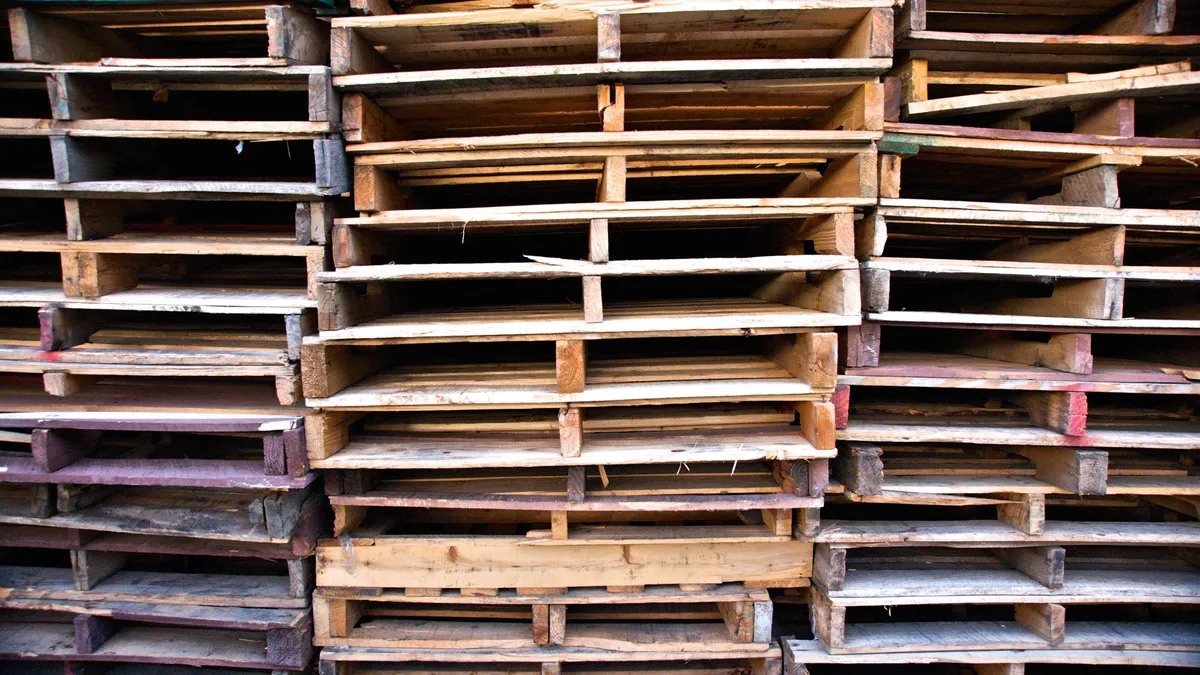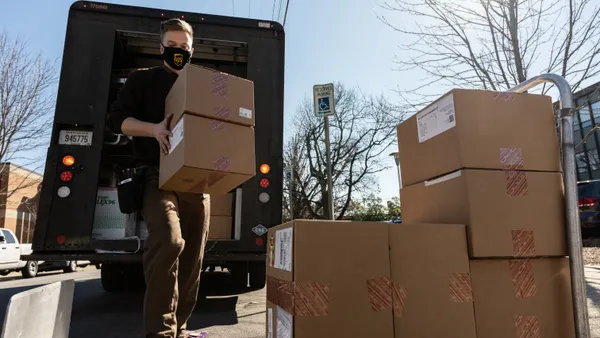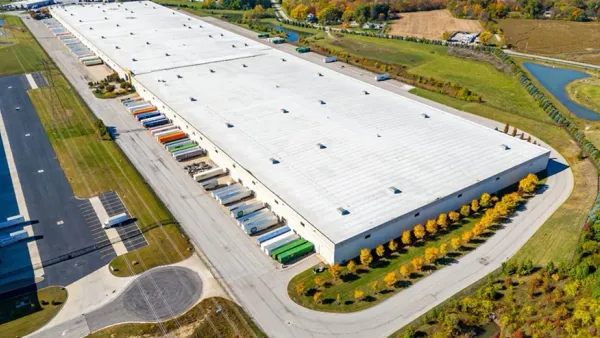Dive Brief:
- The market for alternatives to standard wood pallets is growing, rising by 3% year-over-year in 2019, according to a new report from Future Market Insights (FMI). Eco-friendly molded pallets can not only reduce the supply chain's environmental impact, but could save costs as they are light-weight and more efficient to ship and recycle than traditional wood pallets.
- According to the FMI report, pallet manufacturers are increasingly becoming stakeholders in the supply chain sustainability movement and are exploring ways to convert "wood waste, damaged logs, and even agriculture residues into molded wood pallets" that are lightweight and custom fit for carrier loads.
- While cutting down on timber use, alternative pallets can be made more cheaply in smaller sizes, stack more efficiently and require less truck space to ship, which saves on logistics costs. Furthermore, Ismail Sutaria, a principal at FMI, told Supply Chain Dive, they are a far more sustainable option for one-time use, allowing end-users in the supply chain to recycle them instead of loading empty wooden pallets back onto trucks. The reduction in the number of trucks and return trips cuts down on fuel costs and is an added sustainability benefit.
Dive Insight:
In 2016, wooden pallet production accounted for 43% of the hardwood and 15% of the softwood produced in the U.S., coming out to 849 million pallets total. According to the National Wooden Pallet and Container Association, 508 million of those pallets were new and 341 million were recycled.
Overall, depending on how heavily a pallet has been used, the average lifespan is considered to be about three years.
While it is possible to reuse and recycle wooden pallets depending on the types of loads they've been carrying, some carriers consider it a risk. Older pallets can break, nails and screws can loosen and damage products being shipped and they are susceptible to mold and insects, which is a particular concern for shippers in the food and medical supply businesses. As a result, a large number of pallets end up in landfills each year.
Molded pallets, on the other hand, can be made nestable to save space, are over 35% lighter than traditional pallets (depending on size), are pre-treated during fabrication to be resistant to pests and are generally manufactured without screws or nails, which can all save on production, shipping and recycling costs. They can also be cheaper to purchase outright, depending on the manufacturer and level of customization needed.
Despite the waste associated with wooden pallets, they are by and large the industry standard, making it a significant lift for companies to retool their logistics processes to switch to molded pallets. However, as the push for sustainability increases and the technology to enhance the durability and customizability of molded pallets improves, FMI predicts the market will continue to grow significantly.
"This is now the future of the pallet industry, and we are seeing more and more manufacturers moving in this direction," Sutaria told Supply Chain Dive. He said logistics and warehousing firms in Asia Pacific and other emerging markets increasingly seek out molded pallets, as they look to "leapfrog" past the traditional pallet model















